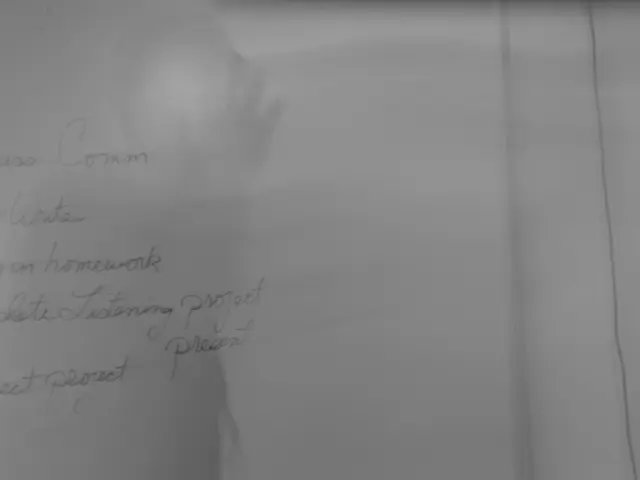Tribute to Margot Friedländer's Enduring Communication
Margot Friedlaender, a survivor of unimaginable hardship, lived a life of resilience, sharing her heart-wrenching experiences to inspire humanity and empathy. Born in Berlin, she was a victim of the Nazi regime, eventually finding herself interned at Theresienstadt during World War II. Yet, it was her fierce determination and endless capacity for forgiveness that truly defined her.
As she neared the end of her life, Friedlaender remained upright, tirelessly spreading her message in classrooms, at memorial events, and in interviews. Her voice, though weak, echoed with a gentle insistence: "Be human."
At 103, the honorary citizen of Berlin passed away. Her message, however, endures.
A Lifetime of Commitment Honored
Friedlaender received numerous accolades for her unwavering commitment to coexistence. In 2011 and 2023, she was awarded the Federal Cross of Merit, and in early April, she was bestowed the inaugural "Special Prize of the International Peace Prize of Westphalia." Regrettably, she declined the Grand Cross of the Federal Order of Merit from Federal President Frank-Walter Steinmeier, as well as participation in the commemoration of the 80th anniversary of the end of the war.
Politics were not her forte, but she was never shy about voicing her concerns. "I don't understand much about politics," she'd say. "But I always say, 'That's how it started back then too. Be careful. Don't let it happen again.'"
Tracing Her Footsteps
The Holocaust, etched in her memory as if it were yesterday, was a dark chapter in Friedlaender's life. One of the few remaining witnesses, she tirelessly reminded people of the dangers of intolerance and ignorance.
Born Margot Bendheim, she returned to Berlin at the age of 80, embracing her hometown once more after decades spent in America. Skeptics questioned her motives, but Friedlaender was undeterred. "I have had good experiences, on the one hand with the parents, adults, with children, with students," she said. "With people."
Berlin welcomed her with open arms, honoring her with the title of honorary citizen. Awards and accolades filled her apartment, but it was the memories of her loved ones that held the most significance. A picture of her mother and brother stared back at her, a reminder of the pain that she carried yet refused to let consume her.
Life After Liberation
In America, she found solace in her husband, Adolf Friedlaender. The two stood by each other, their shared past a silent bond that transcended words. After his passing in 1997, Margot's heart ached, but she persevered, remaining steadfast in her mission to promote unity and healing.
Back in Berlin, she was revered as a beacon of hope and a symbol of resilience. Even as her own health waned, her message remained as urgent as ever. "What was, we cannot change, but it must never happen again," she'd say. "Never again should anyone be subjected to what was done to people then, because people were not recognized as people."
The Legacy Lives On
Friedlaender's foundation continues her educational work in schools, promoting freedom, democracy, and her powerful message of forging a better future, one that rejects hatred and embraces empathy. As we remember her and the millions who suffered under the Nazi regime, let us heed her words and strive to make her vision a reality.
In Berlin, stumbling stones remember her brother Ralph and her mother, Auguste Bendheim. Margot, too, has a stone, marked with her deportation to Theresienstadt. And beneath it, the simple yet profound words: "survived."
Sources: ntv.de, gut/dpa
- Deaths
- National Socialism
- Berlin
- Judaism
- World War II
- Germany
- Holocaust
- Remembrance
Insights:
- Forgiveness and Empathy: Despite her harrowing experiences, Friedlaender was a champion of forgiveness and empathy, urging people to understand each other and learn from the past to build a better future.
- Education and Awareness: Recognizing the importance of education in promoting understanding and preventing history from repeating itself, Friedlaender dedicated her late years to educating students and sharing her experiences.
- Perseverance: Despite the odds and her advanced age, Friedlaender maintained her determination to share her message and fight for unity and reconciliation, setting an example for future generations.
- Margot Friedlaender's employment policy, throughout her life, was committed to coexistence and promoting unity, resulting in numerous accolades, including the Federal Cross of Merit in 2011 and 2023.
- Using platforms such as classrooms, memorial events, and interviews, Margot Friedlaender's employment policy emphasized the importance of learning from history and promoting empathy, with her voice echoing, "Be human."
- In her later years, Margot Friedlander focused on her community policy, returning to Berlin as an honorary citizen, striving to educate people and prevent the repetition of the tragedies of the Holocaust.
- Even after her death, Margot Friedlaender's legacy continues through the foundation that carries on her educational work, aiming to promote freedom, democracy, and empathy, as noted in the community policy statement, "What was, we cannot change, but it must never happen again."








